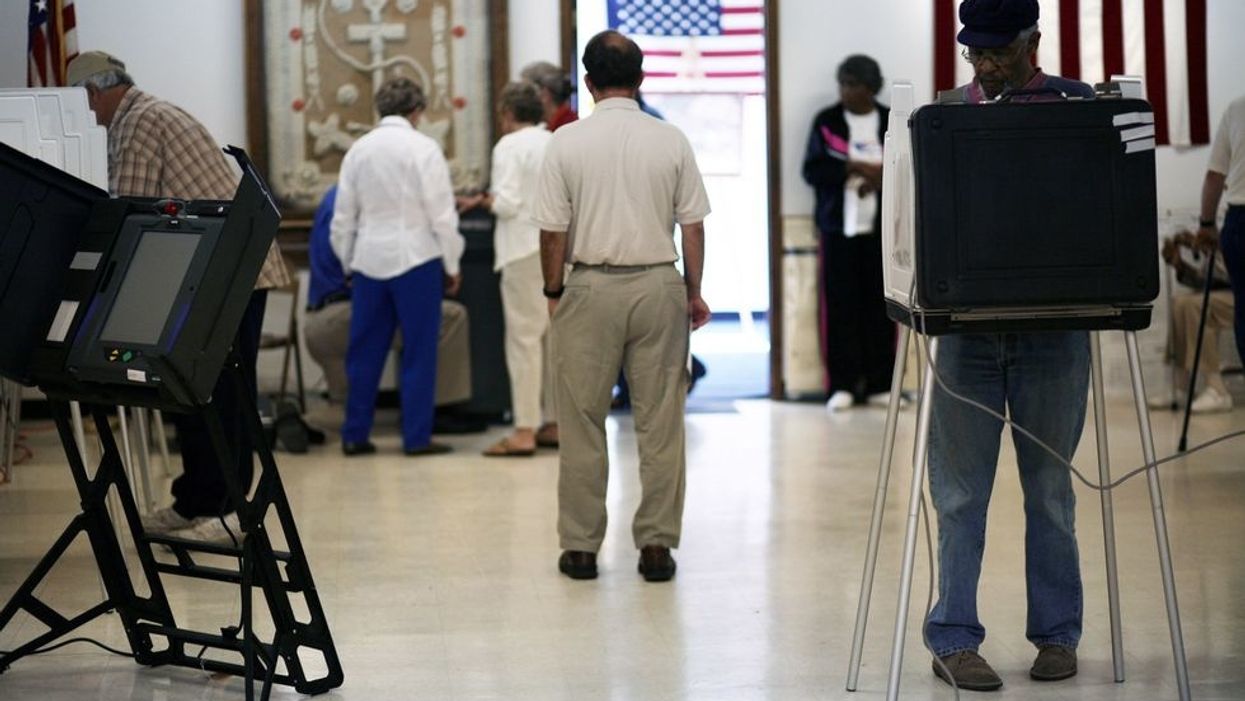Ready is democracy program director for the U.S. Public Interest Research Group, which advocates for the public interest.
The presidential election is less than a year away and the Democratic voting begins in less than three months, but every day between now and then, the candidates are also competing in a "big-money primary."
You didn't get a ballot for the big-money primary? Don't worry, most of us don't. Here's how it works. Running for office is incredibly expensive. Unless candidates are independently wealthy, they often need to court contributions from megadonors or corporate interests to be competitive in their races. So, a very small number of people have massive influence on who runs for office — and well before any of us get a chance to cast a ballot. It's been this way for years.
But in the 2020 presidential election, there are signs that big money's grip on our democracy may be loosening. Through October, contributions of less than $200 were the single largest source of funding for the presidential candidates, according to a U.S. PIRG analysis of Federal Election Commission data. In total, candidates have raised almost $192 million in small-donor funds. That's nearly twice as much as the total contributions from big-donor-funded political action committees and other organizations. It's also nearly $100 million more than candidates had raised at the same point in the 2016 campaign.
This development has the potential to help shift our democracy. Six of the leading candidates — President Trump, Sen. Bernie Sanders, Sen. Elizabeth Warren, South Bend, Ind., Mayor Peter Buttigieg, Sen. Kamala Harris and former Vice President Joe Biden — have each raised more than $10 million from small donors. At this point in the campaign, Sanders has raised more money from 2020 small donors than he had from all donors in 2016. With these sorts of hauls, it's clear that candidates can raise enough to run a small-donor-powered campaign.
So what's changed? There are at least two possible reasons — one technological, one cultural.
Technologically speaking, the internet has made fundraising from small donors easier than ever. With email and social media, asking a million people to contribute is as easy as asking a single person. When combined with the visibility and name recognition inherent in a presidential campaign, we may be close to peak small-donor efficiency.
But internet efficiency only explains part of the increase in giving. The culture around contributing has changed, too. Successful small-dollar fundraising creates a virtuous cycle. Candidates pointing to successful small-donor totals convincingly show how the average person is making a difference. People can see communal action adding up to something significant. In that light, pitching in $20 for the candidate of your choice seems more rational.
This isn't to say that big money doesn't still have an undemocratically large amount of influence. After all, contributions greater than $200 still account for 34 percent of all presidential campaign funds. In addition, the small-donor gains being made at the national level haven't moved down the ballot just yet. Even in high-profile, statewide campaigns like next year's Senate races in Colorado and Maine, candidates have so far raised 300 percent more money from large donors. In other words, the big-donor primary is still going strong.
That said, there are ways to reduce that influence. State and city policies, such as tax credits and matching public funds for small political contributions, can help increase this type of participation.We should continue to fight for those sorts of reforms at the federal level. In the meantime, we should celebrate the remarkable growth of small-donor power. Candidates should be accountable to, and dependent on, regular folks — not only people, special-interest groups and institutions with lots of money.



















